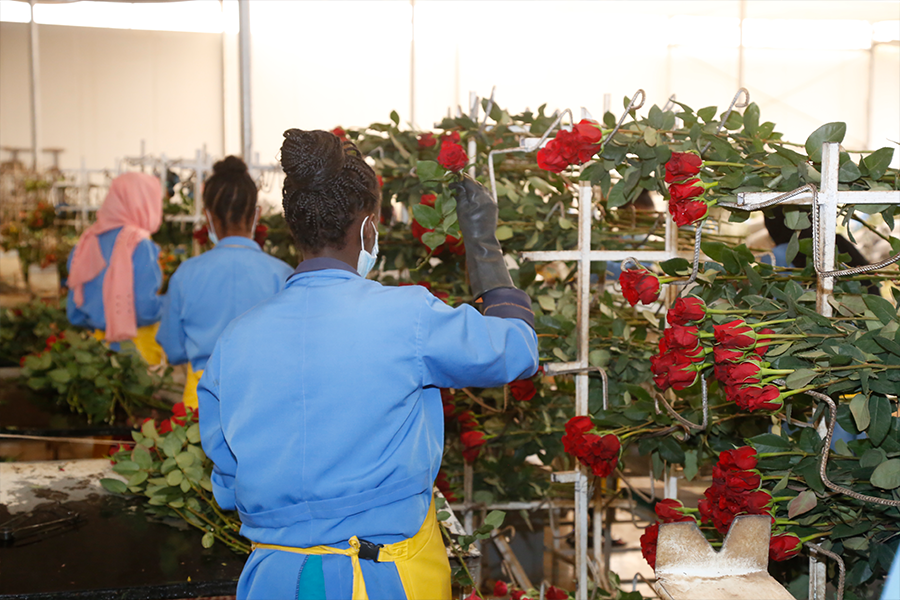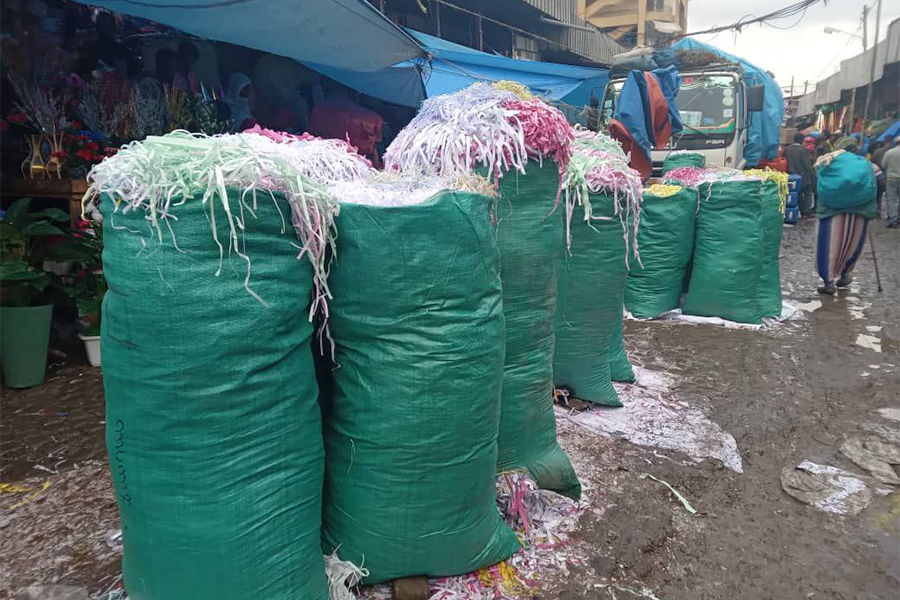
My Opinion | Aug 13,2022
May 27 , 2023
By AKSAH ITALO ( FORTUNE STAFF WRITER )
The excise tax imposed on digital products, including video cameras, is fully exempted, creaking hope for the crumbling players in the film industry.
The tax proclamation imposed on the industry required adjustments, according to Wasihun Abate, a tax policy advisor of the Ministry of Finance, who disclosed that the film industry has suffered an economic blow and needed a relief period to recover.
The high excise tax levied on cameras has been cited as one of the factors for filmmakers producing under-quality and substandard videos. Ephrem Moges, president of the Ethiopian Filmmakers Association, observes that although the relief period could be seen as a step forward to revive the industry, there were prerequisites that should have come forth.
For Ephrem, the prospective investment opportunities have been bottlenecked by a lack of recognition as a business sector which has prompted most producers to turn to commercials and documentaries with hopes of avoiding losses.
“It's the cart before the horse,” he said.
The Association was established in 1993 to lobby on behalf of filmmakers and has 96 active members under its fleet. Ephrem states that low social protection, rare public funding, and the fragmented policy structure have hindered filmmakers from flourishing as an industry.
"It's one of the most discouraged business sectors," he told Fortune.
As a producer for over a decade, Ephrem observes the challenges in financing that have resulted in low-quality sub-standard films and a reduction in the number of audiences.
UNESCO reports indicate that the country lacks a clear pathway for equity investment through which prospective investors can engage with producers. This has led most filmmakers to tap into their own resources or settle for low-budget films. The average annual production of local films reaches up to 140, where most are produced below standard and tethered by low-budget productions. The challenge has been conspicuous for the industry as empty cinema chairs have become prevalent.
Urban Film Production Plc. Incorporated five years ago, with a 200,000 Br capital. The company has mainly focused on commercials and documentaries to garner profit.
Daniel Damtew, the general manager, concurs that the excise tax breeds little fruit unless the industry is recognized and categorized as a legitimate business. He has been importing video cameras for the last two years and has had to pay a series of taxes amounting to 133pc.
Throughout his 11 years in the profession, he noticed that technical abilities have improved, but knowledge and discipline have remained stagnant. He also observed that peripheral courses primarily focus on the theoretical aspects and lack the practical approach necessary for mastering the craft.
"Scarcity of professionals has crippled the industry," Daniel told Fortune.
The chocolate and sweet factories are the other sectors that were hit hard, with nearly three-quarters of 130 factories shutting down. Espoused as a "luxury item", the 10pc excise tax duty on sugar, candy and chocolate resulted in a nominal decrease from a 20pc initially levied on the companies three years ago.
According to Elias Teshome, vice president Ethiopia Sugar & Sweet Producers Association (ESSPA), the excise tax has exacerbated the sweet manufacturers that were hampered by the pandemic and scarce sugar supply.
Strict taxes and regulations have made it difficult for local manufacturers, while lack of supervision at the borders has led to contraband trade of sweet products and the decline of factories.
The tax expert Wassihun agrees that the contraband trade has pushed local factories to shrink production and driven them out of business, plummeting the tax revenues collected.
"The business needs to revive," he said.
NIB Candy & Chocolate Plc, incorporated in 1965, has seen a substantial production crunch for the past two years. Elias, the factory's general manager, stated that even though the endowment of excise tax seems promising, the sweet industry lagged behind in receiving the support it requires over the years as an infant industry.
"The industry has not been encouraged," he said.
Three years ago, a proclamation was issued imposing an excise tax on various items considered luxury or harmful to public health. The list of items taxed included video cameras, alcohol, tobacco, cooking oil, sweets, and bottled water. Manufacturers and producers were required to pay up to 40pc in taxes.
Economists such as Shewaferaw Shetaw believe expanding the tax base on 'luxury items' is necessary for a post-war economy. He argues that the economic growth model should be seen through the lens of health, education, and living standards per capita.
While he thinks sufficient tax collection is crucial along with broadening the tax base on goods and services, the expert recommends the government builds a relationship with the private sector by being transparent and accountable to support the sectors.
"Pressing political decisions need clarifications," he told Fortune.
PUBLISHED ON
May 27,2023 [ VOL
24 , NO
1204]

My Opinion | Aug 13,2022

Commentaries | Jan 07,2024

Fortune News | May 17,2025

Fortune News | Jun 08,2019

Radar | Sep 14,2024

Radar | May 25,2024

Fortune News | Aug 18,2024

Life Matters | Jun 21,2025

Sponsored Contents | Nov 28,2024

In-Picture | Aug 04,2024

Dec 22 , 2024 . By TIZITA SHEWAFERAW
Charged with transforming colossal state-owned enterprises into modern and competitiv...

Aug 18 , 2024 . By AKSAH ITALO
Although predictable Yonas Zerihun's job in the ride-hailing service is not immune to...

Jul 28 , 2024 . By TIZITA SHEWAFERAW
Unhabitual, perhaps too many, Samuel Gebreyohannes, 38, used to occasionally enjoy a couple of beers at breakfast. However, he recently swit...

Jul 13 , 2024 . By AKSAH ITALO
Investors who rely on tractors, trucks, and field vehicles for commuting, transporting commodities, and f...

Jul 12 , 2025
Political leaders and their policy advisors often promise great leaps forward, yet th...

Jul 5 , 2025
Six years ago, Ethiopia was the darling of international liberal commentators. A year...

Jun 28 , 2025
Meseret Damtie, the assertive auditor general, has never been shy about naming names...

Jun 21 , 2025
A well-worn adage says, “Budget is not destiny, but it is direction.” Examining t...